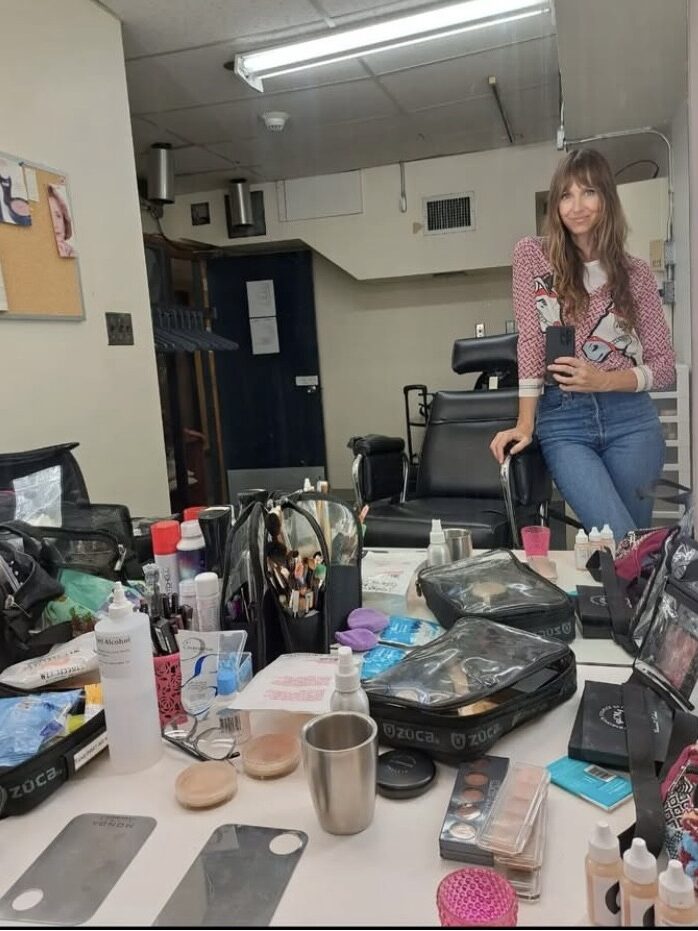
Brenda Magalas is a seasoned makeup artist and department head with two decades of experience as a member of IATSE 856 and nearly 100 film and television credits. She began her career assisting on acclaimed films like Capote, The Saddest Music in the World and Shall We Dance, later leading makeup departments on major features including Nobody, Goon, Flag Day, and Ordinary Angels. Her television credits include Less Than Kind, Burden of Truth, Spencer Sisters, and Todd and the Book of Pure Evil. Brenda has been nominated for two Canadian Screen Awards and has worked with an impressive roster of talent, including Regina King, Keanu Reeves, Laurence Fishburne, Liev Schreiber, Josh Brolin, Sean Penn, Stanley Tucci, Vince Vaughn, Christina Ricci, Christopher Lloyd, Dolph Lundgren, and Alan Ritchson.
When and how did you start in the media production industry?
It was a few years after high school. At the time, I was feeling a bit lost, but I knew I had a strong passion for makeup. I didn’t realize a career in film was even possible, especially living in Canada, let alone Winnipeg. Then I heard about a makeup school in Vancouver. I didn’t know anyone who had gone, but once I found out about it, I started saving my tips from waitressing. I applied, and within a year, I was there. That’s where the journey really began.
After school, I worked on a lot of student films and indie projects around Vancouver. I remember not making a dime, but I felt like I had found the right place—I just didn’t know how to turn it into a career yet. With a few odd jobs and struggling to pay my bills, I ended up moving to Japan to teach English so I could pay off my student loan. Makeup followed me wherever I went but I couldn’t figure out how to make a living.
When I came home in 2003, the film industry in Winnipeg was picking up. I was lucky to get into an internship program through Film Training Manitoba. That was my entry point into the industry here—about four years after I’d gone to school I finally found my place. I’ve been building my career ever since and have now been a member of IATSE for 20 years.
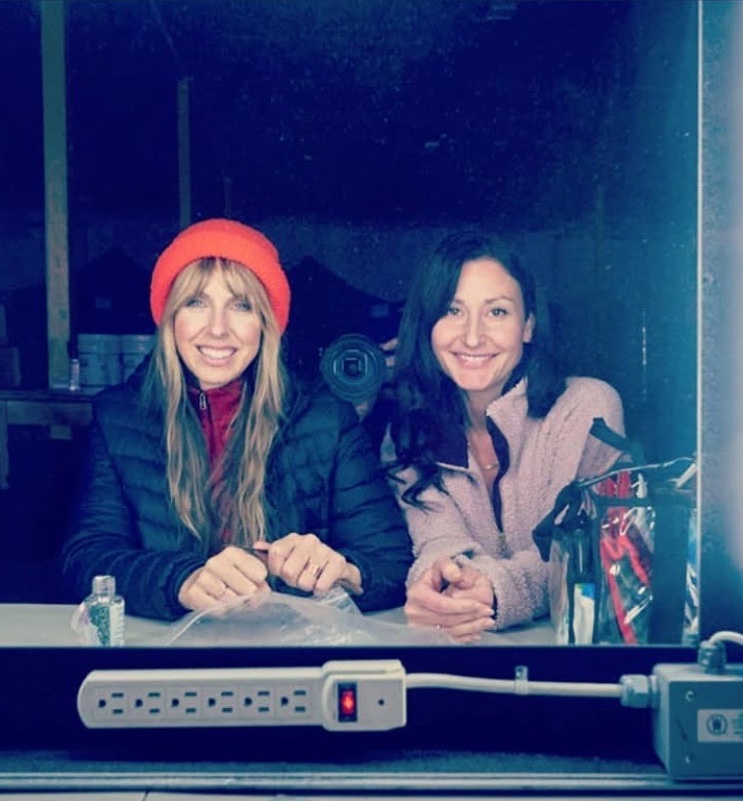
What area do you work in the film industry now, and why?
I’ve been working as a makeup department head since around 2006. It’s a leadership role where I oversee everything in the makeup department.. I work closely with principal cast and coordinate with Producers, Directors, Actors and other departments to ensure continuity and creative alignment. I started out assisting, interning, and doing dailies and working with BG performers, which gave me the opportunity to learn from a wide range of artists and department heads, many from outside the city.
Because the industry in Winnipeg was still relatively small at the time I started, I found myself Keying/Department Heading in only a few years. As the local industry has grown, I’ve continued in that position. My passion has always been in character work, transformation, and collaborating with actors to help them fully inhabit their roles.
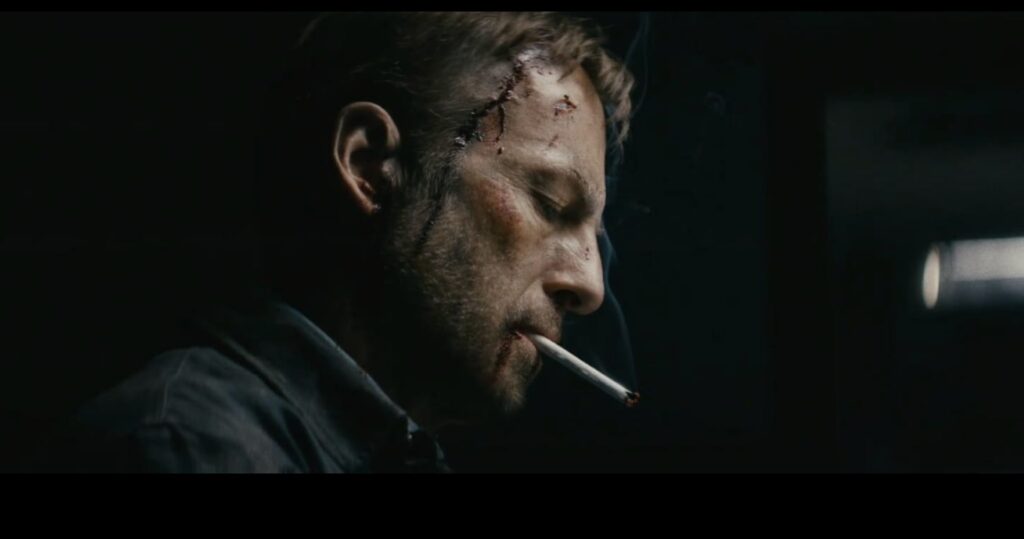
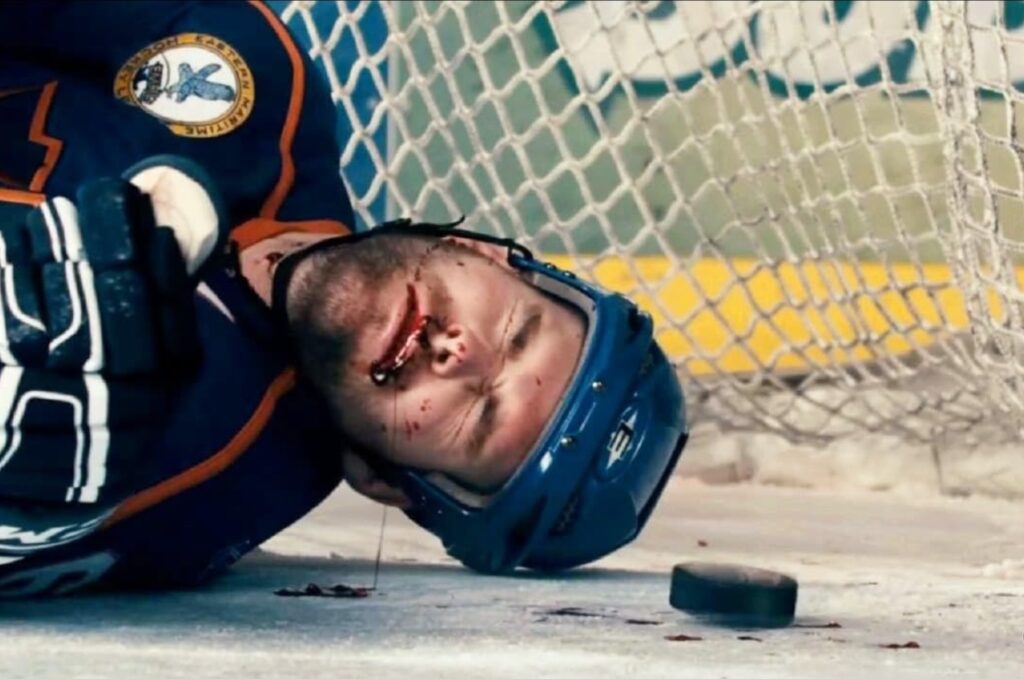
What has been a substantial change since you started in the industry?
Besides the growth in the Winnipeg Market, I guess one of the biggest changes since I started in the industry is how much more digital everything has become. When I began, we were still using Polaroid cameras to take continuity photos, and I’ve always liked writing things by hand and drawing out charts. I still prefer to print out photos, especially for things like blood continuity—it helps me to have something physical to reference and I can get blood and dirt all over my photos instead of my iPad. I’ve adapted and find I always have amazing tech support from someone on my team. I use multiple devices now, and can read and mark up scripts digitally, which actually saves me hours of paperwork. The technology is working for me now, but I still hold on to a few of my old ways.
If you could give yourself advice today to yourself in the past, what would it be?
I’d tell myself not to stress so much about employment or when the next show is coming. That uncertainty is part of the industry—losing jobs multiple times a year and not knowing when the next one will land—but it always works out somehow. Early on, I found it hard to live my life in-between projects. I hesitated to commit to anything—whether it was a vacation or personal plans—because I knew I’d have to drop everything if a show came along. Learning to balance work and life has been one of the biggest challenges.
So, my advice would be: save money, but don’t forget to live your life in between shows. The balance is tough, but possible. Also, and most importantly, stay healthy. Emotionally, spiritually, and physically. It’s not an easy career choice, so being on top of your health is key.
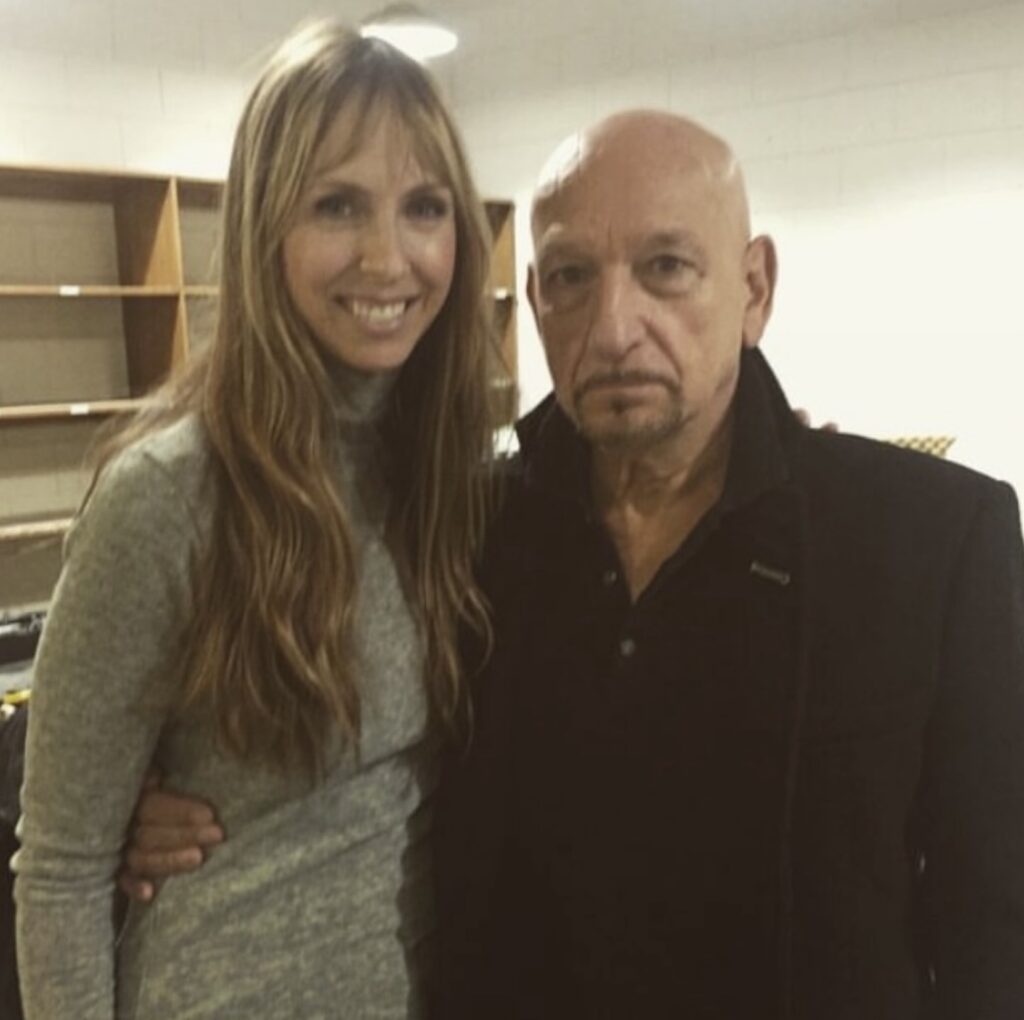
Why is learning and training important?
Continuous training and all types of makeup work, keep me sharp and adaptable. Whether you’re on set or unemployed, things change fast, and you need to be ready. I have taken multiple courses that are transferable and all of them help me on set but keep me employable when there is less work. Training gives you that foundation to build on, but the skill takes time and experience. I used to prefer to work with artists with technical training and as much experience as possible, but there’s always something to learn from everyone, so I keep an open mind. I found teaching and giving my knowledge to someone with less opportunity for school and experience rewarding, and if the passion is there, I can always learn from them as well.
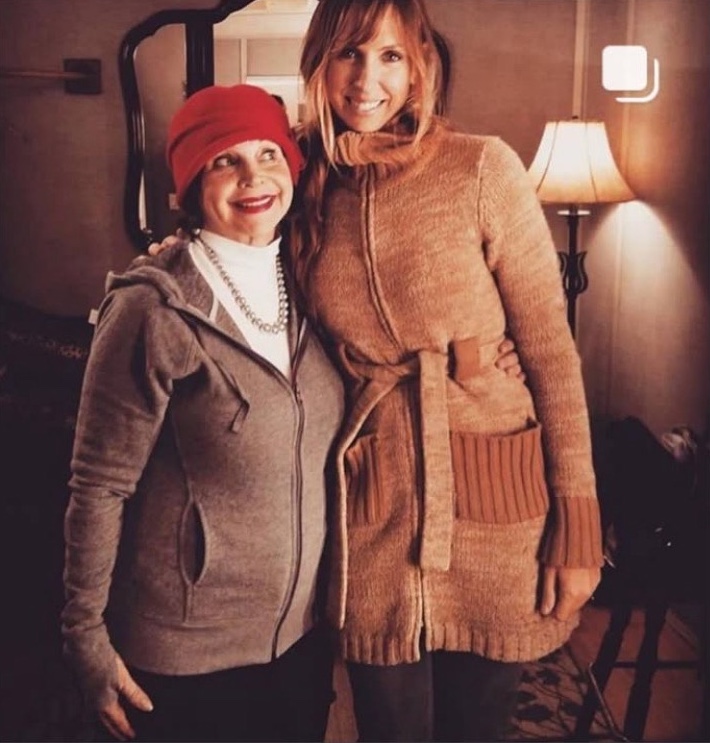
What advice would you give someone starting off in the film industry?
I can only speak for makeup, but I’d say one of the most important things is to build a strong team—people who are dependable, can handle the long hours, and thrive under pressure. Work with as many different artists as you can. Everyone has something to teach you, and each project is temporary.
During the slower periods, keep learning. Take courses, stay creative, and keep your skills sharp. I’ve taken multiple courses over the years that keep me employable if film is not an option. All of this has helped me stay versatile and prepared for different types of work. Even learning skills that might not seem directly related to makeup and makeup effects. A Hair and Aesthetics Certificate made a huge impact on my beard work. Skin and nails gave me the ability to take care of performers that are higher needs. These extra skills have not only made me better as a Makeup Designer but have also provided me with opportunities outside of the industry.
Also, when you’re on set, things can get intense, but learning how to let go is essential. Sometimes the makeup might not be as epic as you hoped, whether it’s yours or someone else’s. You might spend hours crafting a beautiful injury makeup only for your lead actor to rub their face, cry, and pour water all over themselves before filming. It can be part of their process. There are so many moving parts on set, and time is always limited. You’ll never get everything perfect, and there will always be things outside your control. In the end, just do your best and breathe.
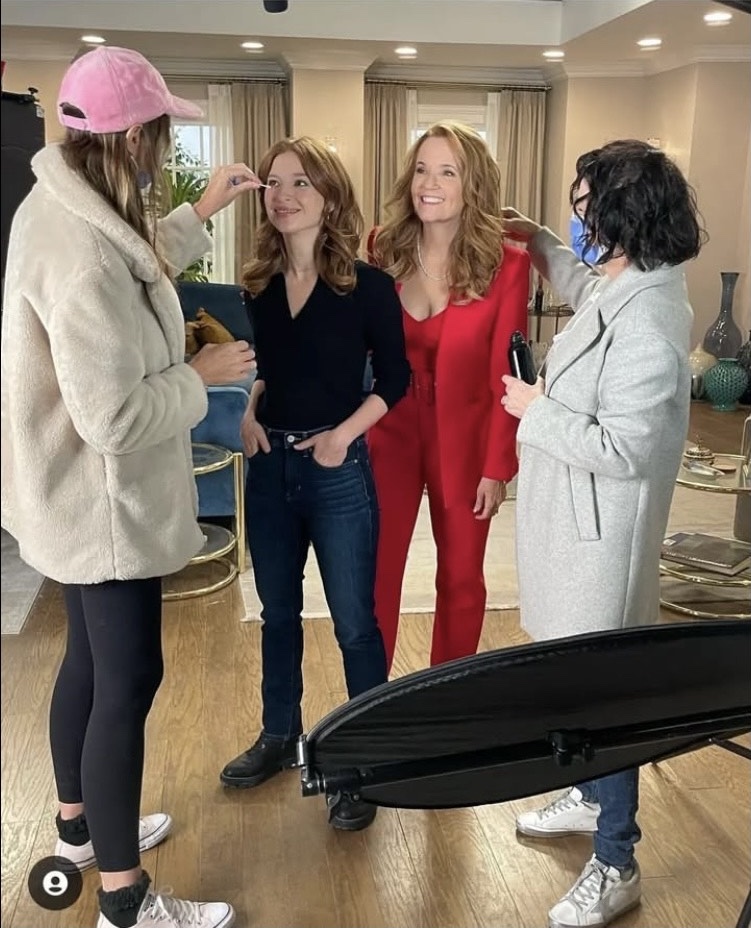
What are some of the films, TV series or even books that have inspired you? How about any thing new you’ve been into?
Comedy shows like Saturday Night Live, Kids in the Hall, and SCTV really inspired me. I loved seeing characters change with wigs, moustaches, bald caps—how makeup could be hilarious and transformative at the same time.
Books like Vogue Beauty from the early ’80s helped shape my early understanding of hair and makeup direction. Kevin Aucoin’s books were a huge influence when I started makeup school—seeing him on Oprah really brought visibility to artists. From there, I started following people like Pat McGrath and Dick Smith. Later, through trade shows, I met V. Neal and Stephen La Porte, who did the Lost Boys. Probably one of my favourite and most inspiring movies, and both were so generous with their knowledge.
Music has always been a huge part of my life. As a kid, I was obsessed with music videos—how they told stories through characters, styling, and makeup. Madonna’s videos in the ’90s especially stood out to me; they were fashion-forward, cinematic, and highly stylized. That blend of fashion, beauty, and storytelling really sparked my imagination.
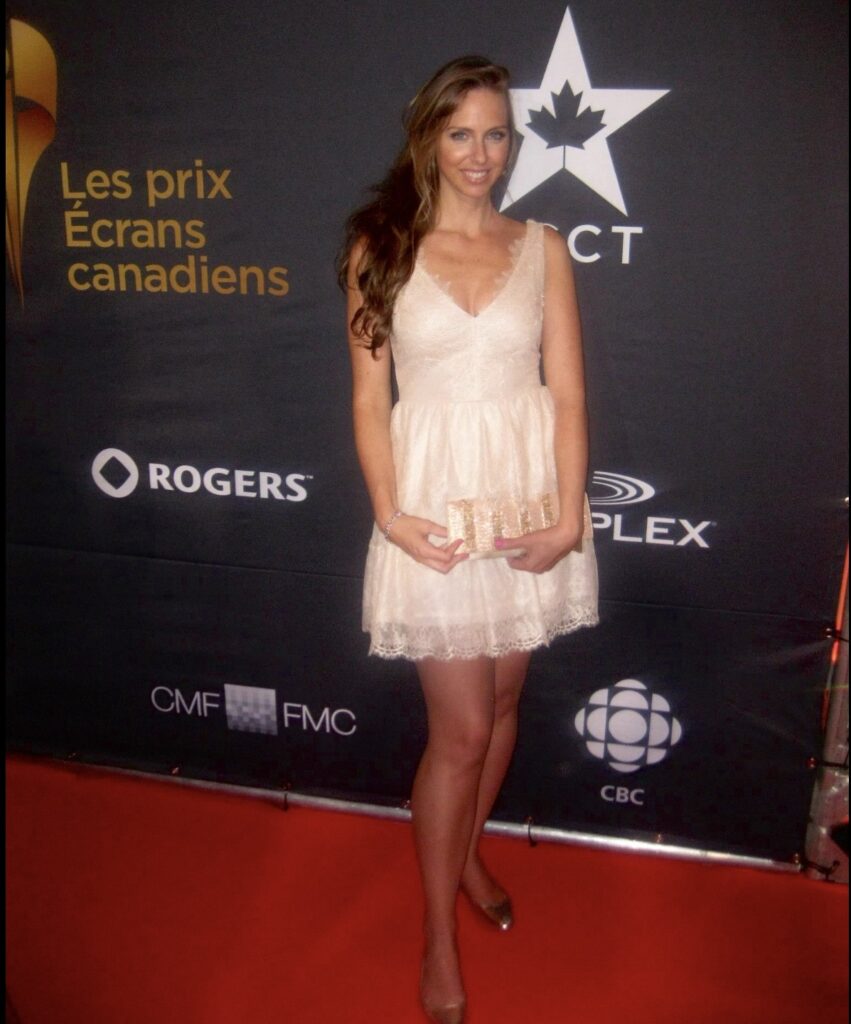
Is there something interesting about you or your past you’d like to share with your colleagues?
I had some pretty unusual jobs before makeup. When I was 16, I worked at my uncle’s rubber plant, which was kind of funny in hindsight—because years later, when I visited prosthetic shops, I recognized the smell and some of the same mold-making techniques and it all tied in, even when I had to craft my own, in a pinch.
Some of my first paid makeup work after I was certified was with men who were transitioning. Watching their confidence shift through the process—the way makeup could unlock something in them—that really stayed with me. Then, while teaching English in Japan, I found myself working with the drag community. I hadn’t planned on doing makeup there, but it found me anyway. Those early experiences taught me how powerful transformation can be—not just on the outside, but inside too.
I also remember doing a beauty makeup demo for one of my final high school exams. I convinced one of the toughest guys in the class to let me do a full glam transformation on him in front of everyone. It was supposed to be a serious final exam, and there was all this pressure to present something in front of the class. My shyness absolutely left me that day, and it turned into something really memorable—and surprisingly powerful.
Looking back, whether it was a factory job, high school, or Japan—before and after I made the move to Vancouver to study makeup—the signs all seemed to pull me in this direction, even if I didn’t realize it at the time
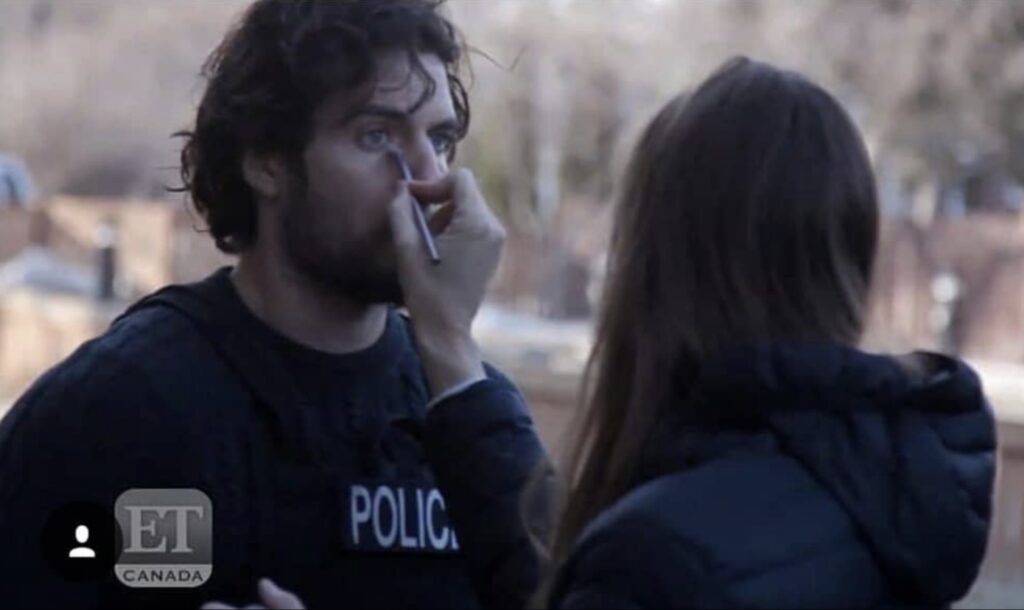
Is there someone you’d like to work with in the film industry, and why?
I follow a few hair and makeup people from the UK that I find really talented. I love that they often do both hair and makeup there—I’ve always had a strong interest in both. There are a lot of people I look up to that I think would be nice to work with. The industry can feel small sometimes, so you never know who you’ll cross paths with. Rather than specific actors or celebrities, I’m always hoping to work with inspiring artists who are nice, passionate, still learning, but have been around a long time and understand the journey. That’s the kind of energy I like surrounding myself with.
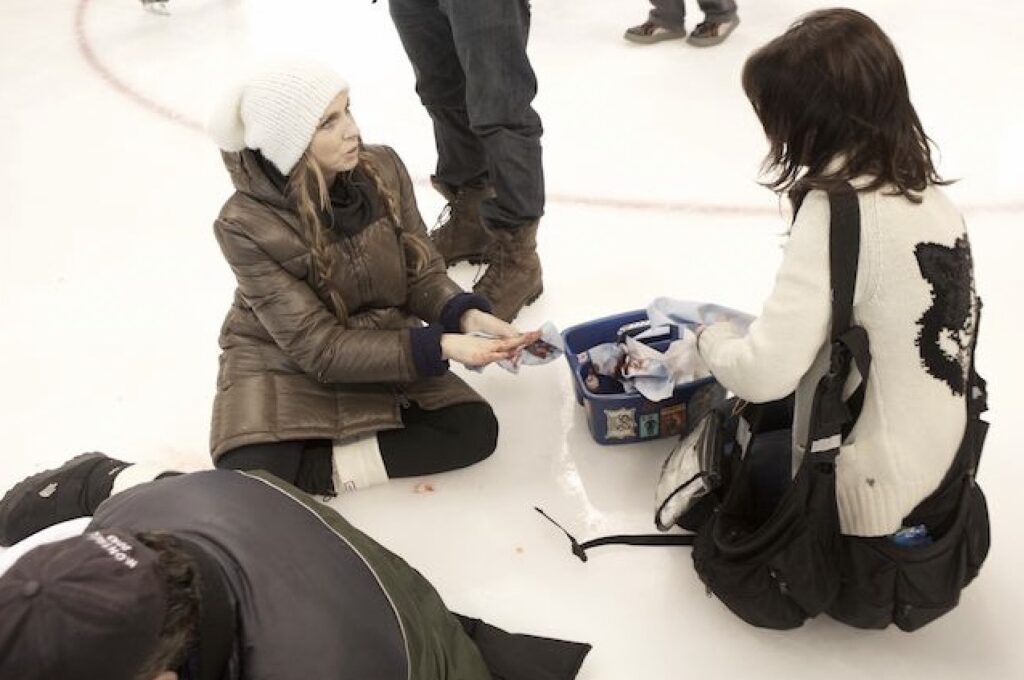
Where do you see yourself in 10 years?
It’s been hard to predict what month to month looks like for me. Haha. I will definitely still be in the world of makeup and hair. I can see it going in a few ways: travelling, maybe I’ll be semi-retired, working from home in a more private setting with beloved clients, perhaps travelling as a personal with one actor at a time, hard to say. Regardless, I’ll be healthy, doing what I love, and maybe even teaching—something I also enjoy. I just want to stay inspired and keep evolving.
FTM is a non-for-profit charity and member of the Province of Manitoba’s Sector Council program funded through the Economic Development, Investment, Trade and Natural Resources. FTM builds a highly skilled and adaptable film industry workforce to support the activities of Manitoba production companies. FTM collaborates and partners with members of the film industry to identify training needs to support workforce development.
